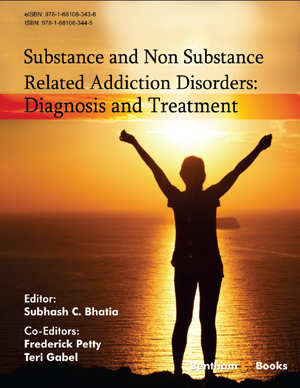Abstract
The effectiveness of psychosocial evidenced-based behavioral interventions for substance and non-substance related disorders are comparable to their effectiveness for other psychiatric disorders . Cognitive behavioral therapy addresses the negative and dysfunctional thoughts and emotions related to these disorders and their reinforcing effects. This also helps develop cognitive skills to deal with cue driven craving leading to reengagement in addictive behaviors. Contingency management uses tangible rewards to support addiction free life style evidenced by negative drug screen participation in individual and group therapy. Behavioral self-control promotes goal setting and self-monitoring for harm reduction. Self-help 12-step programs promote acceptance, surrender to a higher power and self-governance through utilization of support from AA fellowship community. Motivational enhancement therapy is to help individuals to move higher on stages of change and to promote self-efficacy. Solutionbased therapy helps patients find solutions while reinforcing their successes in solving those problems. All these therapies with or without pharmacotherapy have value in achieving addiction free life style.
Keywords: AA, Behavioral self-control training (BSCT), CA, Cognitive- Behavioral Therapy (CBT), Contingency management (CM), GA, Motivational Enhancement Therapy (MET), NA, Relapse Prevention (RP), Voucher-based reinforcement (VBR).


















